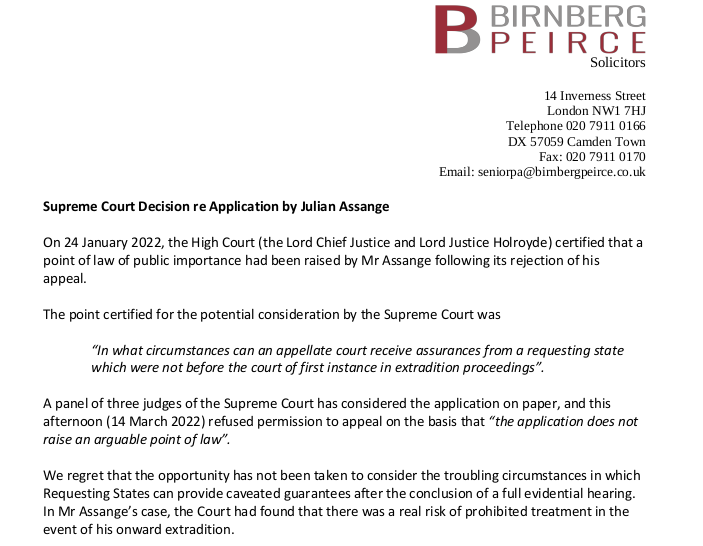UK Supreme Court refuses permission to appeal in Assange extradition. The case now moves to UK Home Secretary Priti Patel to authorize the extradition.
WikiLeaks editor and publisher Julian Assange is facing a 175 year sentence for publishing truthful information in the public interest.
Julian Assange is being sought by the current US administration for publishing US government documents which exposed war crimes and human rights abuses. The politically motivated charges represent an unprecedented attack on press freedom and the public’s right to know – seeking to criminalise basic journalistic activity.
If convicted Julian Assange faces a sentence of 175 years, likely to be spent in extreme isolation.
The UN working group on arbitrary detention issued a statement saying that “the right of Mr. Assange to personal liberty should be restored”.
Massimo Moratti of Amnesty International has publicly stated on their website that, “Were Julian Assange to be extradited or subjected to any other transfer to the USA, Britain would be in breach of its obligations under international law.”
Human Rights Watch published an article saying, “The only thing standing between an Assange prosecution and a major threat to global media freedom is Britain. It is urgent that it defend the principles at risk.”
The NUJ has stated that the “US charges against Assange pose a huge threat, one that could criminalise the critical work of investigative journalists & their ability to protect their sources”.



Does the UK supreme court function similarly to the USA one?